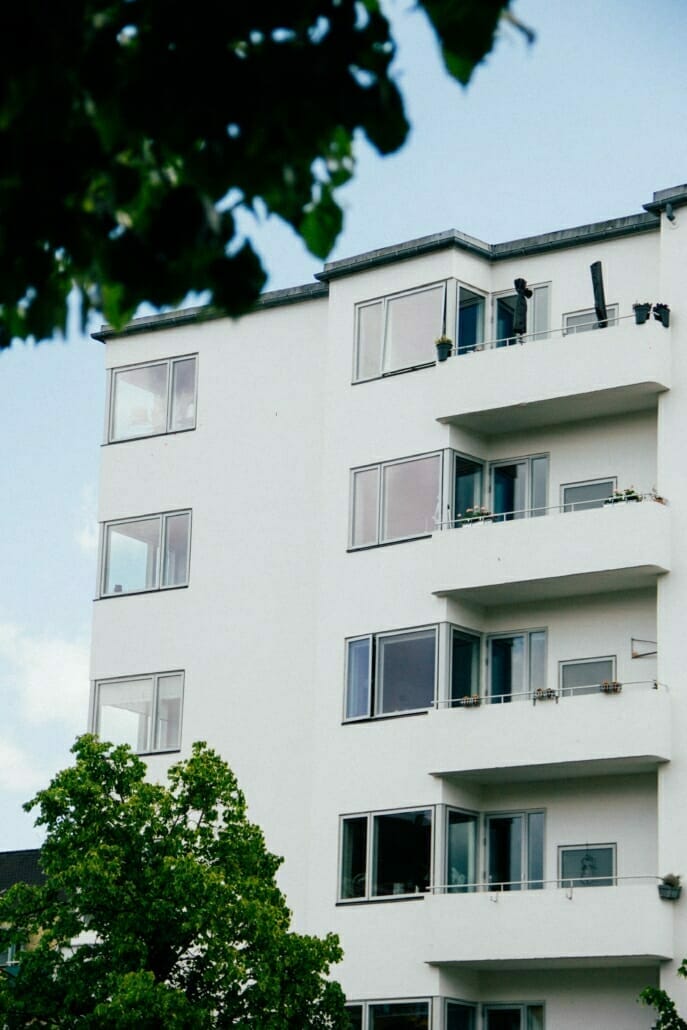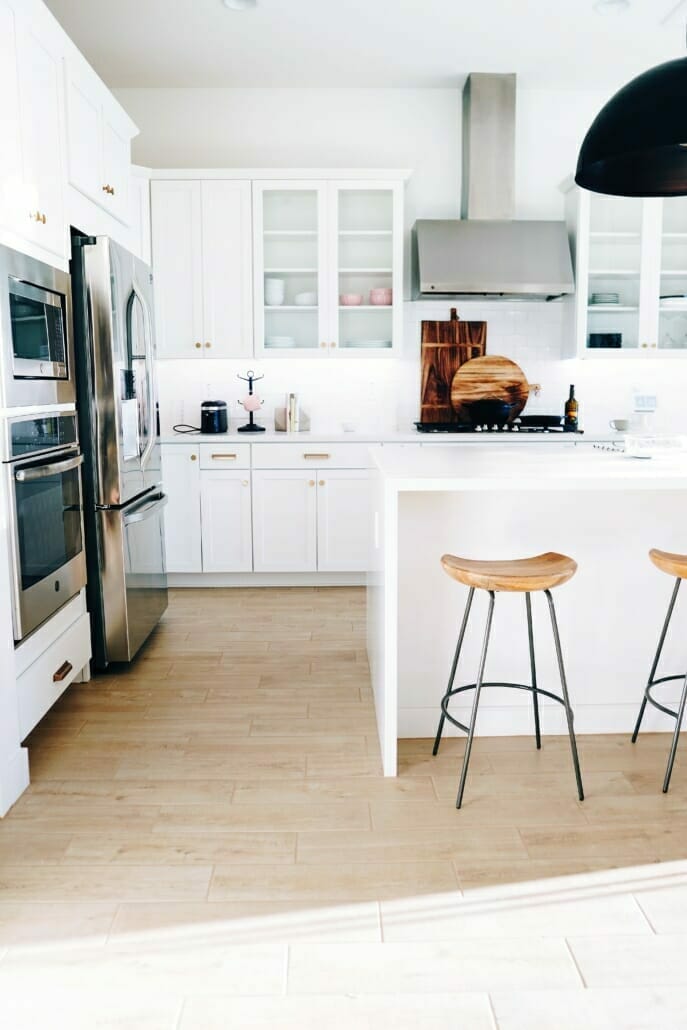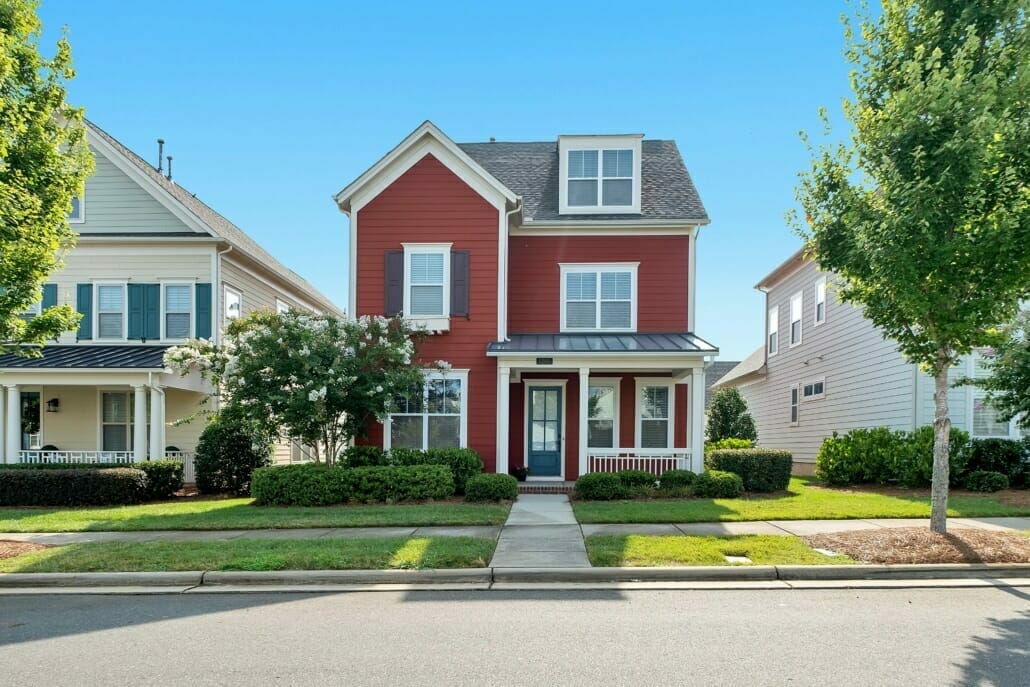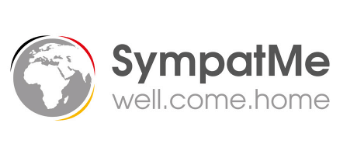German mortgages for Expats
Acquiring Real Estate as an Expat in Germany
There are many reasons to live and work in Germany. The high quality of life, the progressive social system or the attractive housing market can attract expats. The German mortgage market is one of the largest in Europe. It consists of both private and public providers and offers a wide range of mortgage products for borrowers with different needs and requirements. Buying property as an expat in Germany is not just about finding a property that suits your needs, but also about understanding how to get a German mortgage as an expat so you can actually buy it.
That’s why we decided to write an article about this topic. We would like to give you an overview of German mortgages. We will talk about the following points in this article:
Germany has some of the most favorable mortgage rules in the Eurozone, and it is essential that you are aware of your options if you are an expat looking to buy a home in Germany. Buying a property in Germany is one of the most significant financial investments you will make as an expatriate.
If you’re considering taking out a mortgage, look at our expat-friendly partner. LoanLink24 is an independent provider that compares offers from more than 400 banks. But more on that later. We hope you enjoy reading!
Who can get a mortgage in Germany?
There are no restrictions if you want to purchase real estate in Germany as an expat. It means that basically anyone can apply for a mortgage that meets the following basic requirements:
- You have a valid residence and work permit
- You are currently working in Germany
- Your employer or your own company is located in Germany and pays taxes there
- You pay in euros
- You can pay acquisition costs (up to 15% of the purchase price) with equity
Depending on your circumstances, you may have to meet specific additional requirements:
Mortgages for EU citizens
As an EU citizen, you can generally expect the same LTV (loan-to-value) limits as German citizens – up to 100% of the property value. However, some lenders may require a higher down payment.

Mortgages for non-EU citizens
Non-EU citizens with a temporary residence permit can theoretically apply for all types of mortgages, provided they fulfill the following conditions:
- You have been employed by a German company for a minimum of three months.
- You are no longer in the probationary period.
- You can earn at least 1,500 – 2,500 euros per month
However, you are regarded as a higher risk than Germans and EU citizens, which is why only a few banks are willing to grant you a loan. Loan providers require a higher down payment. You can improve your mortgage chances by obtaining a permanent residence permit.
Mortgages for self-employed expats
If you are self-employed (e.g., freelance), getting authorized for a mortgage may be more challenging, as banks generally view entrepreneurship as a riskier investment. You must demonstrate that you can continue to repay (see required documents below). The longer you are self-employed, the easier it will be to be licensed.
Mortgages for individuals approaching retirement age
If you are approaching retirement age, getting approved for a mortgage can be challenging because loans are usually made on the premise that you will have made your repayments by the time you retire. Mortgage lenders check to see if your pension meets the minimum income requirements. If you have contributed to a Riester pension, you can use your savings to apply for a mortgage or pay off an existing mortgage.
Required documents for getting a German mortgage
For your mortgage application, you must prepare several documents, usually dating back several years, proving that you meet the abovementioned requirements. A mortgage broker can guide you on the actual documents you will need, and these usually include:
- Identification, such as a passport (not a driver’s license).
- Registration certificate
- Copy of residence permit
- Proof of German pension insurance, e.g. social security card
- Proof of existing share ownership
- Various property-related documents such as land register excerpts, appraisals, floor plans and partition extracts (available from the seller or broker)
Supplemental documents for employees:
- Payslips for the last three months
- Income tax certificate for the last year (available from your employer)
Additional documents for freelancers and self-employed persons:
- Two valid tax returns of the last years
- Two current tax assessment notices from the German tax office
- Profit and loss statement for the past year audited by your tax advisor
How do mortgages generally work in Germany?
Mortgage banks in Germany allow you to borrow up to 100% of the property’s value (although you will have to cover other costs of buying the house with your assets, such as purchase fees). While some German banks are willing to finance in full, loans of around 80% are more common. Since foreigners are considered a “riskier investment,” mortgage banks usually require a higher down payment, especially if you do not live or work in Germany.
Mortgages in Germany usually have terms of 25 to 30 years, with fixed interest rates in the first few years. However, you can also opt for fixed interest rates of 10, 20, or even 30 years if you pay a higher overall interest rate. Mortgage rates in Germany are relatively low compared to the rest of the world, typically around 1-2% per year. To prevent someone from applying for a mortgage they cannot afford, mortgage providers ensure that your monthly mortgage payment does not exceed 35-40% of your salary.
German mortgage types

There are different types of mortgages in Germany. Below is a brief description of the most common types. A mortgage advisor can help you decide which is best for your situation. To qualify for all the types of mortgages listed below, you must meet some essential criteria.
Annuity mortgage (Annuitätendarlehen)
The most popular mortgage type in Germany is the annuity mortgage. It is a fixed-rate loan with a term of 5 to 30 years. Your monthly mortgage payment remains the same throughout the duration of the mortgage. Initially, you pay mostly interest and repay the original loan in small amounts. Over time, as the loan is gradually repaid, the interest portion decreases, and the repayment portion increases.
A unique feature of the German system is that lenders often allow you to specify the amount to be repaid each month (as a percentage of the original loan, between 2% and 10% per year – called repayment). You can also make unscheduled repayments to pay off your mortgage faster.
Full repayment mortgage (Volltilgerdarlehen)
Complete amortization mortgages are similar to annuity mortgages in that you pay fixed monthly installments of interest and principal. The only difference is that instead of the monthly percentage repayment rate, you specify a period after which you want your loan to be fully paid off. Your monthly payment will adjust accordingly: The shorter the term you choose, the higher your monthly rate.
Interest-only mortgage (endfälliges Darlehen)
This type of mortgage is uncommon in Germany and is almost always used to buy a property to rent. With an interest-only mortgage, you do not pay off the loan with your monthly amounts but rather its interest, so you must pay off the remaining debt at the end of the term. If an expat wants an interest-only mortgage, you normally need to make a sizeable down payment.
Building society mortgage (Bausparen)
The building savings loan is a mortgage loan connected to a savings account. Long-term, low-interest rates usually characterize these mortgages. You can choose between two options: Either you save in designated savings account until you are entitled to a mortgage, or you take out the mortgage and put the rate in a savings account to pay off the mortgage later.
Variable-rate mortgages (variables Darlehen)
Unlike fixed-rate mortgages such as annuity and complete amortization mortgages, variable-rate mortgages, as the name implies, have variable interest rates. Interest rates are adjusted to the ECB rate every three months.
This mortgage variant allows the lender to take advantage of interest rate fluctuations, thereby accelerating repayment. Adjustable-rate mortgages are also relatively flexible and allow lenders to pay higher interest rates or cancel their mortgages without penalty. This type of mortgage is often combined with other fixed-rate mortgages.
Pros of variable-rate mortgages can include lower initial payments than a fixed-rate loan and lower payments if interest rates drop. The downsides are that the mortgage payments can increase if interest rates rise.

LoanLink24 our expat-friendly partner
LoanLink24 is a German company that serves international clients, usually expats planning to buy or build real estate in Germany. LoanLink24 is an independent provider that compares offers from more than 400 banks and aims to present its international clients with quick financing opportunities and low bureaucracy.
You’ll be pleased to find an English-speaking team of specialists finding the best deals tailored to your needs. The offer includes property search support through Immo-Shopping24 and a free property evaluation. Proof of financing can be possible within 24 hours.
LoanLink24 offers fast and modern real estate financing solutions. As an independent, founder-managed organization, the Baufi24 Group (which includes its subsidiary LoanLink24) drives innovation in the lending sector and creates a fair, transparent, and personal customer experience.
How does the application process work?
Step 1: Use the mortgage calculator to find out how much you can afford. The calculator considers your personal and financial circumstances and calculates your maximum budget and loan amount.
Step 2: In the second step, LoanLink24 offers you suitable financing proposals by comparing financing options from over 400 banks.
Step 3: If you are unsure which option is the best for you, you can get free advice from an English-speaking mortgage expert.
Step 4: When you have decided on a mortgage type, you can secure financing options.
How does the LoanLink24 mortgage calculator work?
Based on your input, the budget calculator calculates the highest possible purchase price for a property in the area of your choice. LoanLink24 has developed an evaluation algorithm that considers the financing guidelines of over 400 partner banks to provide you with a reliable maximum purchase price.
What is a financing certificate?
With a financing certificate, you can stand out positively in the eyes of a real estate seller because it’s direct proof that you can afford a given property.
Property owners or real estate developers like to receive the security that you can afford the property. With a financing certificate from your bank, you have proof and can increase your chances of winning the bid for your dream home.
LoanLink24 will be happy to provide you with the appropriate certification.
You usually get a financing certificate dependent on the property you have chosen. However, it isn’t binding, and your financing advisor or bank calculates it based on your financial situation.
Please don’t confuse the terminology.
Many terms are used to refer to the financing certificate. These could include “Finanzierungsnachweis,” “Finanzierungsbestätigung,” or “Banknachweis”.
In particular, the term “Finanzierungszusage” can lead to confusion. Your bank has confirmed paying out a loan for a specific property, and this agreement is bound to the property in question. A financing certificate isn’t tied to a particular property. It only states how much money you can take out for a mortgage.
Which funding programs can I use?
Probably the best-known development bank is the Kreditanstalt für Wiederaufbau (KfW). Various programs are offered there to facilitate the purchase of real estate. Your home must meet many standards (e.g., energy efficiency) to qualify for this program.
How do I buy a house in Germany?

Buying a house in Germany can be a challenge even for locals. Bureaucratic hurdles must be overcome, sometimes over a long period.
First, make sure you have some basics covered:
- Speak with a financial advisor to determine how much you can afford
- Check if you are entitled to government subsidies (e.g. from KfW)
- Open a German bank account
When you find a property you like, negotiate a buying price and reserve your new home. Next, you have to deal with the costs.
How much money do I have to save to purchase a home in Germany?
Down payments on German real estate usually start at 20%, although obtaining 100% of the property price as a loan is possible. However, most German banks regard foreign investments as riskier, so the required down payment can be as high as 50%.
The down payment you make will affect your monthly mortgage payment and the available final purchase value, which means the total loan amount, so you should plan accordingly.
Figure out how much you can afford to pay
Before you start looking for a new property, estimating how much you can afford is essential. This way, you can be sure that you will be able to pay for your desired home in Germany. You can also enhance your chances of getting loan approval and avoid unpleasant surprises.
With the German mortgage calculator, you can estimate the loan sum and the monthly repayments for the complete term of your home loan. You can also change the repayment frequency to see how this will impact your mortgage payments.
Conclusion – buying a house in Germany
In summary, buying a property in Germany can be an excellent investment for foreigners. Not only is the country beautiful and full of culture, but the economy is stable, and the cost of living is relatively low. If you are interested in buying a property in Germany, research the process carefully and consult an experienced real estate agent. Buying a home in Germany can be a wonderful experience, and we hope you will consider it!
You need to load content from reCAPTCHA to submit the form. Please note that doing so will share data with third-party providers.
More Information


